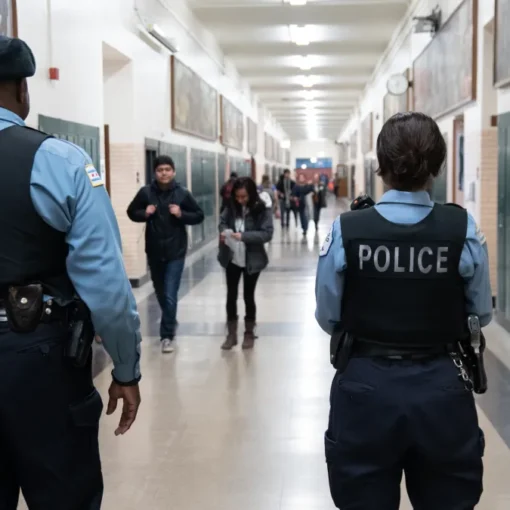Navigating a CPS investigation is complex, and seeking professional advice and support is crucial. Always consult with your attorney for personalized guidance based on the specifics of your case, as they can provide tailored strategies to help you through this challenging process. Below are steps you can take to mitigate the issue:
1. Stay Calm and Composed:
– Take a deep breath and try to remain as calm as possible. It’s normal to feel a range of emotions, but maintaining composure is crucial.
– Understand that CPS investigates based on concerns about a child’s safety, and their involvement doesn’t necessarily imply guilt.
– Avoid confrontations with your child about the call; instead, strive for open communication to understand their perspective without becoming defensive.
2. Cooperate with CPS:
– Be cooperative and transparent with CPS investigators. Provide them with the information they request, such as medical records, school reports, or any relevant documentation.
– Ask for clarification if you don’t understand a question and express your willingness to work with them to ensure the child’s well-being.
– If there are specific concerns raised, address them proactively. This could involve discussing any changes in your family circumstances, living arrangements, or addressing any issues that may have led to the CPS involvement.
– Keep a record of all interactions with CPS, noting the names of investigators, dates, and the content of discussions. This can be essential for your own understanding and potentially for legal purposes.
Remember, these initial steps are focused on establishing a cooperative and communicative relationship with CPS. The subsequent steps involve more detailed considerations such as seeking legal advice, understanding your rights, engaging with support networks, attending court proceedings if necessary, and working towards reunification with your child.
3. Seek Legal Advice:
– Engage the services of a family law attorney with experience in child protective cases. They can guide you through the legal aspects, ensuring you understand your rights and responsibilities.
– Share all relevant information with your attorney, including any concerns you have about the situation and details of your interactions with CPS. This openness enables them to provide the best possible advice tailored to your case.
– If you can’t afford an attorney, inquire about legal aid services or consult local bar associations for pro bono representation options.
4. Understand Your Rights:
– Familiarize yourself with your rights as a parent. This includes the right to be informed about the allegations, attend court hearings, and participate in the development of case plans.
– Maintain open communication with your attorney to ensure you fully comprehend the legal processes involved. Knowing what to expect helps you make informed decisions throughout the CPS investigation.
– If your child is temporarily placed in foster care, understand your rights to visitation and reunification efforts. Work collaboratively with any services recommended by CPS to demonstrate your commitment to creating a safe and stable environment for your child.
These steps emphasize the importance of legal counsel and understanding your rights within the child protective system. Seeking legal advice provides a strategic approach to address the allegations, and comprehending your rights empowers you during the investigation and any subsequent legal proceedings.
5. Engage with Support Networks:
– Reach out to friends, family, and community resources for emotional and practical support. Facing a CPS investigation can be emotionally taxing, and having a support network can provide both encouragement and assistance.
– Attend support groups for parents who have experienced similar situations. These groups offer a space to share experiences, gain insights, and access valuable coping strategies.
6. Attend Court Proceedings:
– If your case progresses to court, attend all hearings as required. Your presence demonstrates your commitment to addressing any concerns and working towards a resolution.
– Follow any court orders promptly, and work collaboratively with the court-appointed representatives, such as guardians ad litem or parenting assessors.
– Maintain regular communication with your attorney to stay informed about the legal proceedings and any developments in your case.
7. Work Towards Reunification:
– Collaborate with the services outlined in the case plan developed by CPS. This plan typically includes specific steps and requirements for you to address concerns and create a safe environment for your child.
– Attend parenting classes, counseling, or therapy as recommended by CPS to demonstrate your commitment to personal growth and addressing any issues identified during the investigation.
– Keep detailed records of your progress, completing each requirement outlined in the case plan. This documentation serves as evidence of your dedication to reunification with your child.
In summary, engaging with support networks helps you navigate the emotional challenges, attending court proceedings ensures your active involvement in the legal process, and actively working towards reunification demonstrates your commitment to providing a safe and stable environment for your child.
FREQUENTLY ASKED QUESTION
1. What should I do if my child calls Child Protective Services (CPS) on me?
– Remain calm, cooperate with CPS, seek legal advice, understand your rights, engage support networks, attend court proceedings, and actively work towards reunification. Consulting with a family law attorney is crucial during this process.
2. How can I find a reliable family law attorney for a CPS investigation?
– Research local attorneys with experience in family law and child protective cases. Seek recommendations from trusted sources, and consider consulting with legal aid services or bar associations for pro bono options if financial constraints exist.
3. What rights do I have as a parent during a CPS investigation?
– Parents have the right to be informed about allegations, attend court hearings, participate in case plan development, and engage legal representation. Understanding these rights empowers parents to navigate the CPS process more effectively.
4. What are some support resources for parents facing a CPS investigation?
– Connect with friends, family, and local community resources for emotional and practical support. Attend support groups for parents who have experienced similar situations to share insights and coping strategies.
5. How can I actively work towards reunification with my child during a CPS case?
– Collaborate with services outlined in the case plan, attend recommended classes or counseling, and keep detailed records of progress. Demonstrating a commitment to personal growth and addressing identified concerns is key to working towards reunification. Always consult with your attorney for personalized advice.
Last updated on: April 11, 2024




